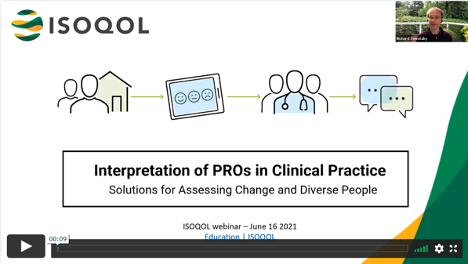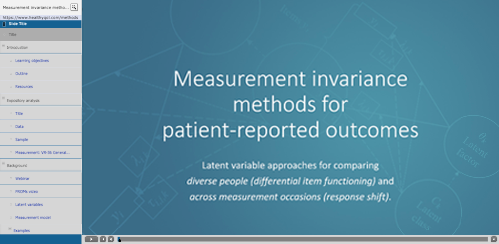Whiteboard Video on Patient-Reported Outcome Measurement in Diverse Populations
How can information from patient-reported outcome measures (PROMs) be used to improve healthcare for everyone? What are the challenges and solutions when using these measures for assessing change and diverse people?
This 3-part whiteboard video provides a brief introduction to:
- Use of PROMS in healthcare
- Response shift: How do we ensure valid assessments of change over time?
- Differential item functioning: How do we ensure valid comparisons of different people?
Learn about implications and solutions for response shift (RS) and differential item functioning (DIF) in clinical practice. The webinar includes:
- Introduction to PRO validation, response shift, and differential item functioning to assess change and diverse people (20 minutes)
- Panel discussion with case studies about implications and solutions for clinical practice (40 minutes)
- Overview of aggregate level implications and analytical approaches (10 minutes)

Presentation Slides (PDF - 66 pgs, 2 MB)



